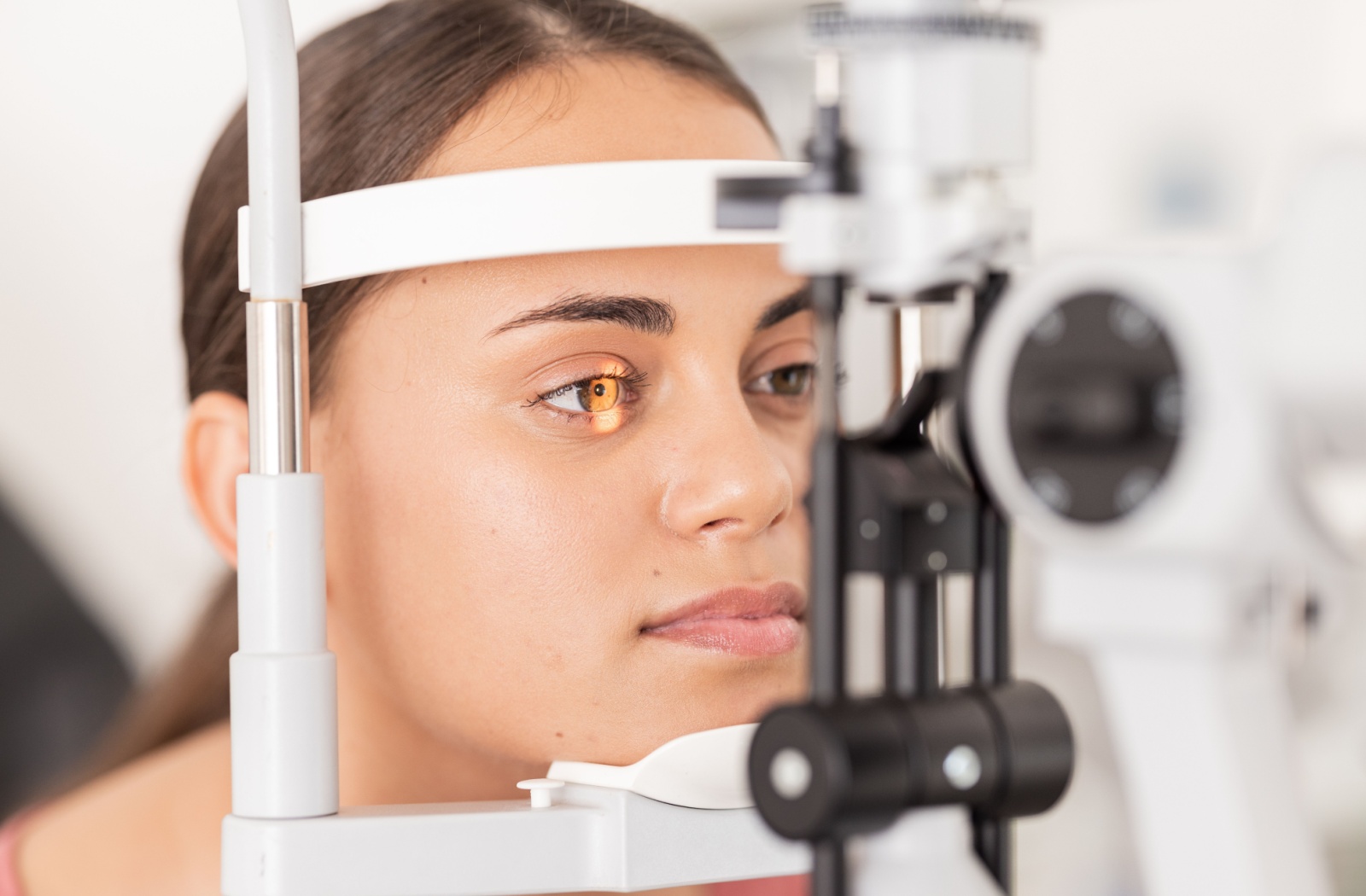Concussions, though often associated with symptoms like headaches and dizziness, also have the potential to significantly affect one’s vision. Concussions can impact visual health if parts of the brain involved in vision are damaged or injured.
If left untreated, the changes to your vision can begin to affect day-to-day activities. Your eye doctor can perform adult and children’s eye exams to determine if certain symptoms might be concussion related and treat vision impairments related to build back visual capabilities.
What Is a Concussion?
A concussion is a type of traumatic brain injury (TBI) that occurs due to a forceful impact or blow to the head or body. It can disrupt the normal functioning of the brain, leading to various physical, cognitive, and psychological symptoms.
Concussions are commonly associated with sports-related injuries, but they can also occur in everyday activities such as falls, car accidents, and physical altercations. They can be notoriously difficult to identify in the short-term, and have many long-term effects still being studied. Symptoms of a concussion may include:
- Headache
- Dizziness
- Nausea
- Trouble with balance
- Blurry vision
- Confusion
- Fatigue
- Irritability
- Light and noise sensitivity
- Changes in mood or behaviour
These symptoms can range from mild to severe and may last for days, weeks, or even longer if not properly managed. A person who has experienced concussions in the past may be more susceptible to their effects should they become concussed again in the future. The following symptoms after a concussion require immediate medical attention:
- Double vision
- Loss of consciousness
- Seizure
- Convulsion
- Repeated vomiting
- Neck pain
- Severed headache
- Weakness, tingling, or burning in arms or legs
How Concussions Affect the Visual System
More than 70% of your brain is involved with vision, and 80% of sensory information is visual. The brain injury caused by a concussion results from a forceful impact. In the context of vision, this can disrupt the complex network of nerves and structures that contribute to sight.
When the brain experiences trauma, the visual processing pathways can suffer damage, leading to issues within that system. The eyes may function normally, but the brain interpreting that complex visual information can be affected, leading to a condition known as post-trauma vision syndrome.
Common Vision Problems Associated with Concussions
Post-concussion vision problems are diverse and can include:
- Blurred vision: This is one of the most common post-concussion vision issues and can occur due to damage to the eye muscles or the focusing system within the eye.
- Double vision: Concussion-related double vision or diplopia can appear as images side by side or on top of one another.
- Light sensitivity: Also called photophobia, this sensitivity makes normal levels of light uncomfortable and can indicate issues related to the brain’s control over the eye’s response to light.
- Peripheral vision deficits: Damage to the brain’s integration of visual information can lead to reduced awareness of what’s happening in the periphery.
These symptoms can impact an individual’s day-to-day function, yet they might not be immediately obvious after a concussion.
The Importance of Early Detection & Treatment
Because vision problems post-concussion can be subtle and develop over time, it’s crucial to have a comprehensive eye examination as soon as possible after an injury. Optometrists with specialized training in neurovisual optometry can evaluate vision.
They may do this by checking eye tracking, focusing, coordination, and visual processing to map out a treatment plan involving vision therapy. The earlier these interventions occur, the better the chance of returning to normal visual function.
Measures to Take for Recovery & Return to Play
In the immediate aftermath of a concussion, the focus should be to stop what you are doing and see a healthcare professional. If you experience vision changes, visit an eye doctor experienced in concussion-related vision issues for a comprehensive vision evaluation.
Based on the findings from the evaluation, they will create a personalized treatment plan that leverages visual aids, updated prescriptions, and targeted exercises to retrain and improve the visual system’s functionality.
The Role of Vision Therapy in Rehabilitation
Vision therapy is a type of physical therapy for the eyes and brain, and it’s a key component of recovery for many post-concussion visual issues. It consists of supervised activities designed to correct or enhance specific visual dysfunctions.
Athletes undergoing vision therapy may work with a therapist to improve visual tracking, reduce double vision, and increase eye teaming skills, which are all vital for their performance on and off the field. Vision therapy can also benefit children in their academic and social development.

Improve Your Vision
The effects of concussions extend beyond the initial brain injury and can include the visual system. When you’re aware of the potential visual disturbances following a head injury, the importance of prompt evaluation, and the value of specialized treatment, you can take proactive steps toward a healthy recovery.
If you suspect a concussion or are currently experiencing post-concussion visual symptoms, book an appointment with Vision Care Centre, asking for a Neuro-visual evaluation for a personalized visual assessment and treatment protocol to improve your vision and ability to perform activities of daily living.



